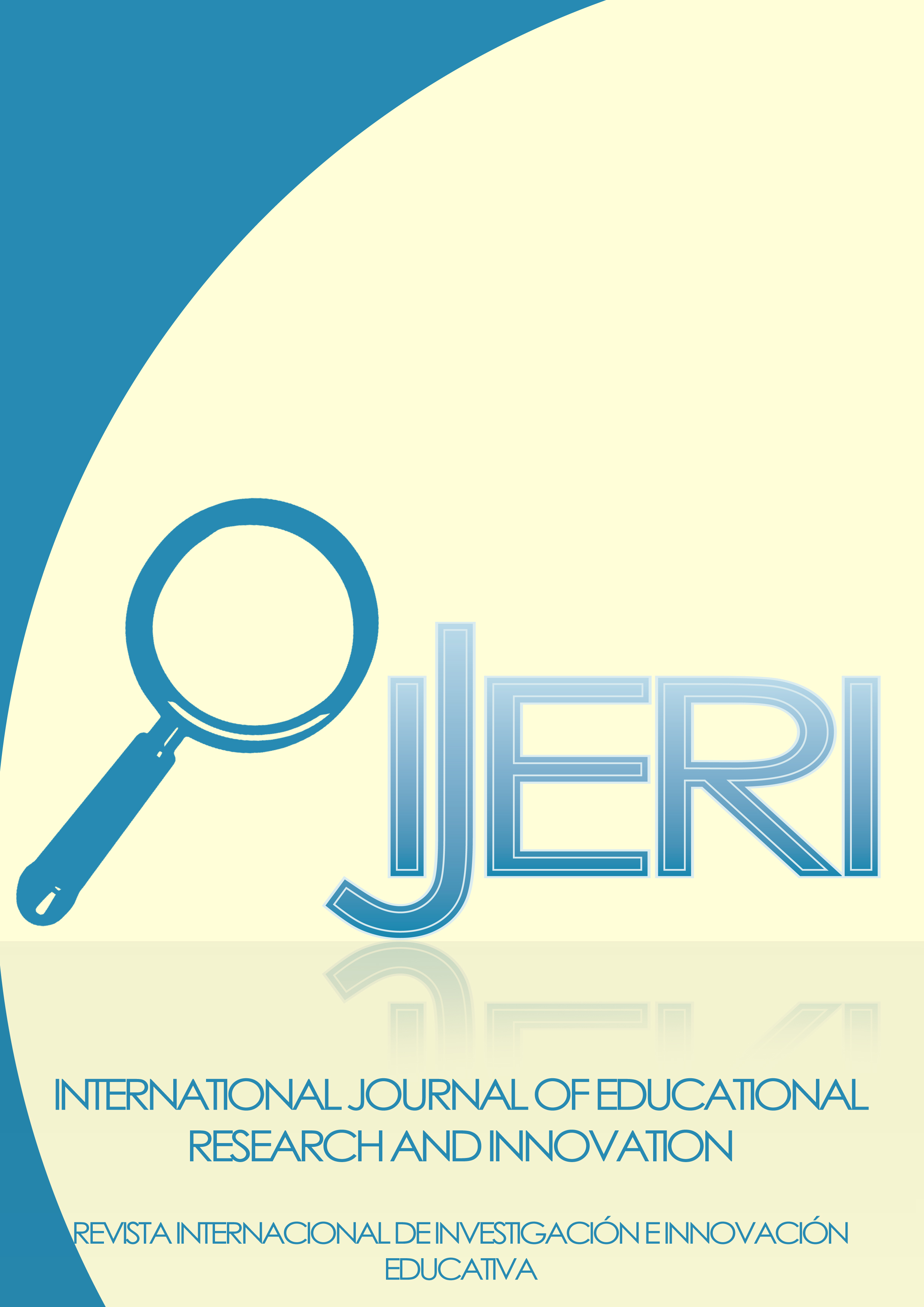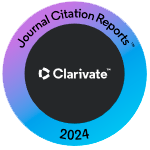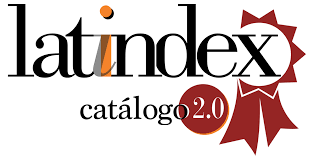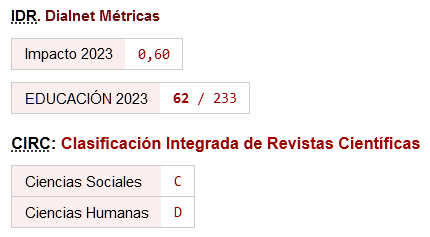Qualitative research in education
revisiting its theories, practices and developments in a scientific-political era
DOI:
https://doi.org/10.46661/ijeri.5917Keywords:
Educational research, Methods, Higher education, Qualitative research, Education theoryAbstract
Since it entered education in the mid-20th century, qualitative research has been a well-established methodology among educational researchers. Its strength lies in its nature, scope, and methodological flexibility to understand education's cultural, social, political and moral phenomena. Between the 1970s and 1980s, the relevance and superiority of quantitative vs. qualitative research in education were debated in academic forums. The paradigm debate was so intense that it reached political discussions. In 2002, the National Research Council (NRC) of the United States of America recommended the Federal Department of Education the exclusion of qualitative research from federal funds because it was not considered scientific research. A similar situation was observed in England and Australia. Since then, qualitative research has continued to develop as a model of educational research with the support of private funds. This paper revisits qualitative education research and examines its developments to reposition itself as a legitimate model of scholarly research in a political-scientific era.
Downloads
References
Anderson, C., & Henry, M. (2020). "Listen and let it flow": A researcher and participant reflect on the qualitative research experience. The Qualitative Report, 25(5), 2, 2.
https://doi.org/10.46743/2160-3715/2020.3673
Banks, C. K. (2016). Foundations of education research: Understanding theoretical components. A book review. The Qualitative Report, 21(9), 1739-1740.
https://doi.org/10.46743/2160-3715/2016.2653
Barba, J. J., González-Calvo, G., & Barba-Martín, R. A. (2014). Que la fuerza esté contigo: desvelar el lado oscuro de la investigación en educación. Magis, Revista Internacional de Investigación en Educación, 7(14), 125-140.
https://doi.org/10.11144/Javeriana.M7-14.QLFE
Barnhouse W., & Lareau, A. (2009). Education research that matters: Influence, scientific rigor, and policymaking. In Barnhouse Walters, Lareau, A. y Ranis, S. H. (ed.). Education Research on Trial: Policy Reform and the Call for Scientific Rigor (pp. 197-220). Routledge. Taylor & Francis Group. New York and London.
Biesta, G. (2015). On the Two cultures of educational research, and how we might move ahead: Reconsidering the ontology, axiology and praxeology of education. European Educational Research Journal, 14(1), 11-22.
https://doi.org/10.1177/1474904114565162
Bogdan, R. & Biklen, S. (1992). Qualitative Research for Education: An Introduction to Theory and Methods (2nd Ed). Boston, London, Toronto, Sydney, Tokyo, Singapore: Allyn and Bacon.
Burgos, C., Bernal, F., Gómez Galán, J., & Bernal Bravo C. (2020). Research and Training Experiences in Social Sciences. Badajoz: Eurytion Press.
Cochran-Smith, M., Ell, F., Grudnoff, L., Ludlow, L., Haigh, M., & Hill, M. (2014). When complexity theory meets critical realism: A platform for research on initial teacher education. Teacher Education Quarterly, 41(1), 105-122.
Concepción, J. D. Veytia, M. G., Gómez Galán, J., & López Meneses, E. (2019). Integrating the digital paradigm in higher education: ICT training and skills of university students in a European context. International Journal of Educational Excellence, 5(2), 47-64.
https://doi.org/10.18562/IJEE.048
Condliffe, E. (2000). An Elusive Science: The Troubling History of Education Research. Chicago and London: The University of Chicago Press.
Cooley, A. (2013). Qualitative research in education: The origins, debates, and politics of creating knowledge. Educational Studies, 49(3), 247-262.
https://doi.org/10.1080/00131946.2013.783834
Creswell, J. (2007). Qualitative Inquiry & Research Design: Choosing Among Five Approaches (2nd Ed). Thounsand Oaks, CA: Sage Publications.
Denzin, N. (2009). Qualitative Inquiry Under Fire: Toward a New Paradigm Dialogue. Walnut Creek, CA: Left Cost Press Inc.
Denzin, N., & Lincoln, Y. (2011) (Eds). The Sage Handbook of Qualitative Research. London: Sage.
Diko, N., & Bantwini, B. D. (2013). Research politics: Some issues in conducting research for the government as a client. Perspectives in Education, 31(4), 15-26.
Eisner, E. & Peshking, A. (Eds.) (1990). Qualitative Inquiry in Education: The Continuing Debate. New York: Teachers College, Columbia University.
Farghaly, A. (2018). Comparing and contrasting quantitative and qualitative research approaches in education: The peculiar situation of medical education. Education in Medicine Journal, 10(1), 3-11.
https://doi.org/10.21315/eimj2018.10.1.2
Flick, U. (2017). Challenges for a new critical qualitative inquiry: Introduction to the special issue. Qualitative Inquiry, 23(1), 3-7.
https://doi.org/10.1177/1077800416655829
Flyvbjerg, B. (2011). Case Study. In N. K. Denzin, & Y. S. Lincoln (Ed). The Sage Handbook of Qualitative Research (pp. 97-128). London: Sage.
Galán, A., Ruiz-Corbella, M., & Sanchez Mellado, J. C. (2014). Repensar la investigación educativa: de las relaciones lineales al paradigma de la complejidad. Revista Española de Pedagogía, 258, 281-298.
Gil-Cantero, F., & Reyero, D. (2014). La prioridad de la filosofía de la educación sobre las disciplinas empíricas de la investigación educativa. Revista Española de Pedagogía, 258, 263-280.
Gómez Galán, J. (2015). Social Sciencies Research in the ICT Age. En J. Gómez Galán, E. López Meneses y L. Molina (eds.). Research Foundations of the Social Sciences (pp. 7-9). Cupey: UMET Press.
Gómez Galán, J. (2018). La educación es un arte. Fronteras de la Ciencia, 3, 4-5
https://doi.org/10.18562/fdlc0027
Gómez Galán, J. (Ed.). (2016). Educational Research in Higher Education: Methods and Experiences. Aalborg: River Publishers.
Gómez-Galán, J. (2020). Media education in the ICT era: Theoretical structure for innovative teaching styles. Information, 11(5), 276.
https://doi.org/10.3390/info11050276
Gough, N. (2010). Can we escape the program? Inventing possible-impossible futures in/for Australian educational research. The Australian Educational Researcher, 37(4), 9-42.
https://doi.org/10.1007/BF03216935
Green, B. (2010). Knowledge, the future, and education(al) research: A new millennial challenge. The Australinan Educational Researcher, 37(4), 43-62.
https://doi.org/10.1007/BF03216936
Guzmán-Valenzuela, C. (2014). Polos epistemológicos, uso y construcción de teoría en investigación cualitativa en educación. Magis. Revista Internacional de Investigación en Educación, 7(14), 15-28.
https://doi.org/10.11144/Javeriana.M7-14.PEUC
Guzmán-Valenzuela, C., & Barba, J. J. (2014). Dilemas y desafíos en investigación cualitativa en educación: Algunas respuestas desde la investigación. Magis. Revista Internacional de Investigación en Educación, 7(14) 13-14.
https://doi.org/10.11144/Javeriana.M7-14.PEUC
Hammersley, M. (2008). Questioning Qualitative Inquiry: Critical Essays. Los Angeles: Sage Publications.
https://doi.org/10.4135/9780857024565
Hammersley, M. (Ed) (2007). Educational Research and Evidence-Based Practice. Los Angeles, London and New Delhi: Sage Publications.
Hanusheck, E. A. (2015). Education's Double Helix. In M. J. Feuer, A.I. Berman, & R. C. Atkinson (Ed) Past as prologue: The National Academy of Education at 50. Members reflect. (pp. 309-312). Washington, D.C.: National Academy of Education.
Hayashi, P., Abib, G., & Hoppen, N. (2019). Validity in qualitative research: A processual approach. The Qualitative Report, 24(1), 98-112.
https://doi.org/10.46743/2160-3715/2019.3443
Hennink, M., Hutter, I., & Bailey, A. (2020). Qualitative Research Methods. New York: Sage.
Hernández-Hernández, F., & Revelles Benavente, B (2019). La perspectiva post-cualitativa en la investigación educativa: genealogía, movimientos, posibilidades y tensiones. Educatio Siglo XXI, 37(2), 21-48.
https://doi.org/10.6018/educatio.387001
Jennifer Kross & Amanda Giust (2018). Elements of research questions in relation to qualitative inquiry. The Qualitative Report, 24(1) 24-30.
https://doi.org/10.46743/2160-3715/2019.3426
Jennings, J. (2015). Research and Policy. The Need to Tie the Knot. In M. J. Feuer, A. I. Berman, & R. C. Atkinson (Ed). Past as Prologue: The National Academy of Education at 50. Members Reflect (pp. 309-312). Washington, D.C.: National Academy of Education.
Johannigmeier, E. V. y Richardson, T. (2008). Educational Research, the National Agenda, and Educational Reform: A History. A Volume in Studies in the History of Education. Information Charlotte, NC: Age Publishing, Inc.
Johnson, R. B., & Christensen, L. (2019). Educational Research: Quantitative, Qualitative, and Mixed Approaches. New York: Sage.
Kizlari, D., & Fouseki, K. (2018). Treating resistance as data in qualitative interviews. The Qualitative Report, 23(8), 1951-1961.
https://doi.org/10.46743/10.46743/2160-3715/2018.3377
Knoblauch, H., Flick, U., & Maeder, C. (2005). Qualitative methods in Europe: The variety of social research. Forum Qualitative Sozialforschung, 6(3), 34.
Koishiro, M. (2013). Cultivating the Ground for the Study of Education as an interdisciplinary Enterprise. A Philosophical Perspective. Educational Studies in Japan: International Yearbook, 7(3), 37-49.
https://doi.org/10.7571/esjkyoiku.7.37
Labaree, D. (2004). The Trouble with Ed Schools. New Haven and London: Yale University Press.
Latorre, A. (2008). La Investigación-Acción: Conocer y Cambiar la Práctica Educativa. Barcelona: Editorial Grao.
Lichtman, M. (2006). Qualitative Research in Education: A User's Guide. Thounsand Oaks, CA: Sage Publications.
López-Meneses, E., Sirignano, F. M., Reyes-Tejedor, M., Cunzio, M., & Gómez Galán, J. (2017). European Innovations in Education: Research Models and Teaching Applications. Seville: AFOE.
Manen, M. (1990). Researching Lived Experiences: Human Science for an Action Sensitive Pedagogy. Albany, NY: State University of New York Press.
McGregor, K. (2020). Toward a Phenomenology of the Material. Qualitative Inquiry, 26(5), 507-513.
https://doi.org/10.1177/1077800419836690
Mercado, A.G. (2018). La Enseñanza de Equidad de Género en el Kindergarten de las Escuelas Públicas de Puerto Rico: Un Estudio de Caso sobre Textos, Materiales y Prácticas Educativas. Doctoral Dissertation, Universidad Metropolitana, Puerto Rico.
Merriam, S. (2009). Qualitative Research: A Guide to Design and Implementation. New York: Jossey-Bass.
Mertens, D. (2005). Research and Evaluation in Education and Psychology: Integrating Diversity with Quantitative, Qualitative, and Mixed Methods (2nd Ed). Thousand Oaks, CA: Sage Publications.
Miles, M., & Huberman, M. (1994). Qualitative Data Analysis: An Expanded Sourcebook (2nd Ed). London: Sage.
Mojica, E. (2020). Retos y Oportunidades del Deporte Pedagógico en Puerto Rico: Un Estudio Cualitativo con Académicos, Líderes del Deporte Puertorriqueño y Políticos. Doctoral Dissertation, Universidad Ana. G. Méndez, Recinto de Cupey, Puerto Rico.
Moral, C. (2016). Estrategias para resistir a la crisis de confianza en la investigación cualitativa actual. Educación XX1, 19(1), 159-177.
https://doi.org/10.5944/educxx1.15582
Morales-Zúñiga, L. C. (2016). Los niveles de la investigación socioeducativa: lógica y relacionalidad investigativa. Revista Latinoamericana de Estudios Educativos, 46(4), 65-96.
https://doi.org/10.48102/rlee.2016.46.4.164
Niaz, M. (2007). Can findings of qualitative research in education be generalized? Quality & Quantity, 41, 429-445.
https://doi.org/10.1007/s11135-006-9015-9
Noblit, G. W., Beach, D., Bueno, B., Fickel, L., Pillow, W., & Thapan, M. (2020). The Oxford Encyclopedia of Qualitative Research Methods in Education. Oxford: Oxford University Press.
https://doi.org/10.1093/acref/9780190643751.001.0001
Osborne, J., & Dillon, J. (2008). Science Education in Europe: Critical Reflections. London: The Nuffield Foundation.
Pacheco-Mendez, T. (2015). Sociologando: Investigación y políticas públicas en educación. Boletín Científico Sapiems Research, 5(1), 33-37.
Padilla-Díaz, M. (2015). Phenomenology in educational qualitative research: Philosophy as science or philosophical science. International Journal of Educational Excellence, 1(2), 101-110.
https://doi.org/10.18562/IJEE.2015.0009
Patton, M. C. (1990). Qualitative Evaluation and Research Methods (2nd Ed). London: Sage Publications.
Paul, J. (2015). Introduction to the Philosophies of Research and Criticism in Education and the Social Sciences. Upper Sanddle River, NJ: Pearson & Merril Prentice Hall.
Pedró, F. (2014). Las Políticas de Investigación e Innovación en Educación: Una Perspectiva Supranacional. Sociedad Española de Pedagogía, 67(1), 39-56.
https://doi.org/10.13042/Bordon.2015.67103
Pérez-Abril, M (2009). A propósito de la legitimidad en la investigación cualitativa. Magis. Revista Internacional de Investigación en Educación, 2, 235-240.
Ponce, O. A. (2016). Investigación Educativa. San Juan, Puerto Rico: Publicaciones Puertorriqueñas Inc.
Ponce, O. A., Gómez Galán, J., Pagán-Maldonado, N., & Canales, A. (2021). Introduction to the Philosophy of Educational Research. Aalborg: River Publishers.
Ponce, O. A., Gómez Galán, J., & Pagán-Maldonado, N. (2019). Current scientific research in the humanities and social sciences: Central issues in educational research. European Journal of Science and Theology, 15, 81-95.
Ponce, O. A., Pagán-Maldonado, N., & Gómez Galán, J. (2020). Philosophy of educational research: New epistemological, methodological and historical approach. International Journal of Educational Excellence, 6(2), 63-79.
https://doi.org/10.18562/IJEE.058
Ponce, O. A. (2014) Investigación Cualitativa en Educación: Teoría, Prácticas y Debates. San Juan: Publicaciones Puertorriqueñas Inc.
Ponce, O. A., Pagán-Maldonado, N., & Gómez Galán, J. (2017). Filosofía de la Investigación Educativa en una Era Global: Retos y Oportunidades de Efectividad Científica. Hato Rey: Publicaciones Puertorriqueñas, Inc.
Ponce, O. A., Pagán-Maldonado, N., & Gómez Galán, J. (2018). Issues de Investigación Educativa en una Era Global: Nuevas Fronteras. Hato Rey: Publicaciones Puertorriqueñas, Inc.
Ponce, O. A., Pagán-Maldonado, N., Gómez Galán, J., & Canales, A. (2020). Filosofía de la Investigación Educativa: Evoluciones Metodológicas. Badajoz: Eurytion Press.
Prasad, B. D. (2019). Qualitative content analysis: Why is it still a path less taken? Forum Qualitative Sozialforschung, 20(3), 36.
Pratts, M. G., Kaplan, S. y Whittington, R. (2020). Editorial essay: The tumult over transparency: decoupling transparency from replication in establishing trustworthy. Qualitative Research. Administrative Science Quarterly, 65(1), 1-19.
https://doi.org/10.1177/0001839219887663
Pring, R. (2000). Philosophy of Educational Research (2nd Ed). London: Continum.
Radford. M (2006). Researching Classrooms: Complexity and Chaos. British Educational Research Journal, 32(2), 177-190.
https://doi.org/10.1080/01411920600568950
Reid, A.M, Smith, J. M., Cope, A. C., & Jamieson, S. (2018). Ethical dilemmas and reflexivity in qualitative research. Perspectives on Medical Education, 7(2), 69-75.
https://doi.org/10.1007/s40037-018-0412-2
Reynolds y Lee (2018). Ethical and methodological issues resulting from recording lapses in qualitative research. The Qualitative Report, 23(7), 1509-1514.
Roger, K, Bone, T, Heinonen, T, Schwartz, K, Slater, J. y Thakrar, S. (2018). Exploring identity: What we do as qualitative researchers. The Qualitative Report, 23(3), 532-546.
https://doi.org/10.46743/2160-3715/2018.2923
Sallee, M. W. y Flood, J. T. (2012). Using qualitative research to bridge research, policy, and practice, Theory into Practice, 51, 137-144.
https://doi.org/10.1080/00405841.2012.662873
San Martín, D. (2018). ¿Artesanía o cazador tras la huella? Reflexiones para el análisis cualitativo de datos. Empiria. Revista de Metodología de Ciencias Sociales, 40, 65-83.
https://doi.org/10.5944/empiria.40.2018.22011
Shavelson, R., & Towne, L (Ed.) (2002). Scientific Research in Education. Washington, DC: National Research Council.
Sirignano, F. M., Perillo, P., & Maddalena, S. (2015). Education and Narration in Intercultural Perspective: Theories and Interventions. International Journal of Educational Excellence, 1(1), 15-41.
https://doi.org/10.18562/IJEE.2015.0001.1
Smeyers, P., & Dapaepe, M. (2008). A Method has been found? On educational research and its methodological preocupations. Pedagogía Historica, 44(6), 625-633.
https://doi.org/10.1080/00309230802486069
Strauss, A., & Corbin, J. (1990). Basics of Qualitative Research: Grounded Theory Procedures and Techniques. Newbury Park, London, and New Delhi: Sage Publications.
Tashkkori, A., & Teddlie, C. (1998). Mixed Methodology: Combining Qualitative and Quantitative Approches. Thounsand Oaks: Sage Publications.
Thomas, D.R. (2017). Feedback from research participants: are member checks useful im qualitative research? Qualitative Research in Psychology, 14(1), 23-41.
https://doi.org/10.1080/14780887.2016.1219435
Tracy, S. J. (2019). Qualitative Research Methods: Collecting Evidence, Crafting Analysis, Communicating Impact. London: John Wiley & Sons.
Umanailo, M. C. B., Hamid, I., Hamiru, H., Assagaf, S. S. F., Bula, M., Nawawi, M., et al. (2019). Utilization of qualitative methods in research universities. Education Science, 21, 2076-2081.
Underwood, J., Kowalczuk-Walędziak, M., & Barrow, J. (2020). International qualitative research on teacher education: Benefits, challenges, and future directions. Kultura i Edukacja, 128(2), 156-173.
https://doi.org/10.15804/kie.2020.02.09
Walter, P. B., Lareau, A., y Ranis, S. H. (2009). Education Research on Trial: Policy Reform and the Call for Scientific Rigor. New York and London: Taylor & Francis Group.
https://doi.org/10.4324/9780203928684
Walters, P. B. (2009). The politics of knowledge. In P. B. Walter, A. Lareau & S. H. Ranis (Ed.). Education Research on Trial: Policy Reform and the Call for Scientific Rigor (pp. 24-37). New York and London: Taylor & Francis Group.
https://doi.org/10.4324/9780203928684
Woods, P. (1996). Researching the Art of Teaching. Ethnography for Educational Use. London and New York: Routledge.
Woulfin, S, L. (2014). Charting research on the policies and politics of coaching. Educational Policies. Analysis Archive, 22(50), 1-8.
Published
How to Cite
Issue
Section
License
Copyright (c) 2022 Omar A. Ponce, José Gómez-Galán, Nellie Pagán-Maldonado

This work is licensed under a Creative Commons Attribution-NonCommercial-NoDerivatives 4.0 International License.











